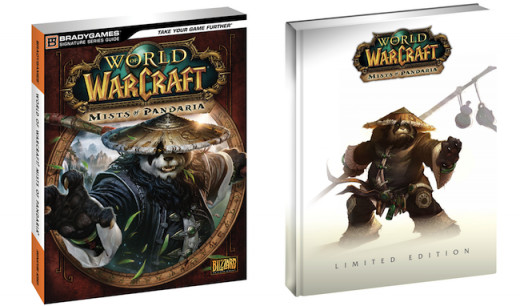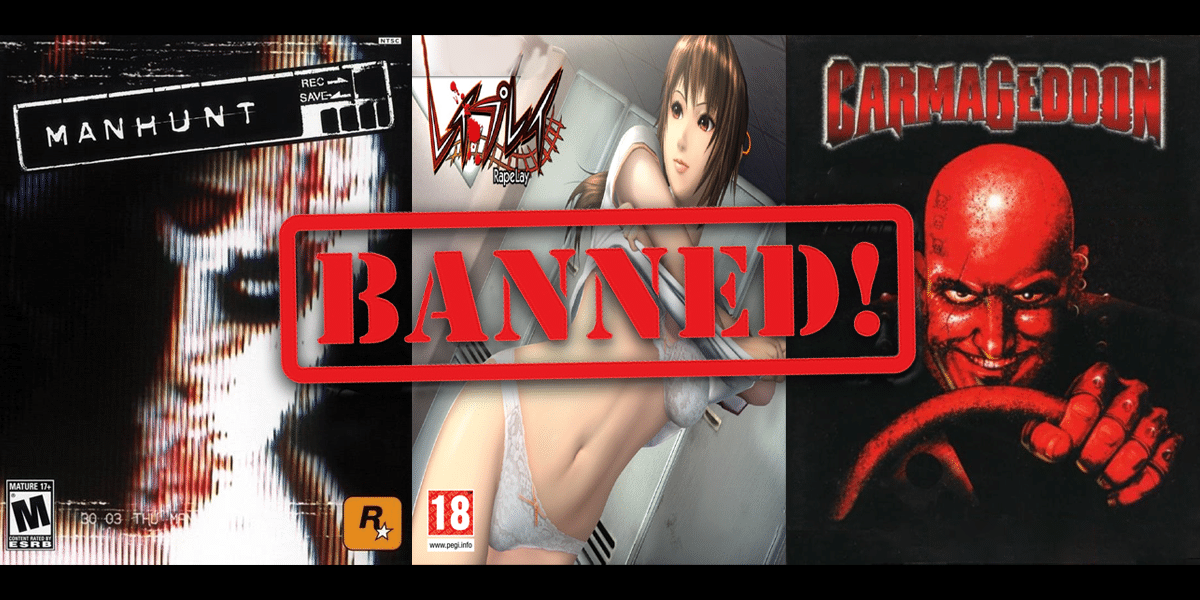Video Game Guides: What's happening to them?
Introduction
I was hoping to save this for a video on my YouTube channel but unfortunately I just can't put the words to footage, so instead I've decided to make good use of HubPages once more! As you may very well know, it's almost impossible to get stuck in a video game - there's far too many people playing them to find something particularly challenging. Whereas in the late 70s and early 90s too few people were playing games, and they were very far between, thus if you wanted help you couldn't ask a friend. Let's not forget that video games were considerably harder in this era, when people actually had a spine--, I mean the patience to deal with constant deaths, farming for 100 coins to get an extra life, poor control and immediately respawning enemies. Should you not have a friend nearby to help you would have to use a video game guide!
These things are becoming rarer and rarer each time a new game is made simply because there's no longer a market in them. Developers know that players can't tolerate huge difficulty unless there's an easier alternative to playing the game. A great example of this would be the revolutionary Crash Bandicoot 2: Cortex Strikes Back, which not only has players collecting 25 Crystals (the main objective and you collect them toward the end of each stage), but also Gems which hide in the most obscure places, and are rewarded to the most hardened of players. It gives you a simple main objective, as well as alternate difficulty challenges should you choose to persue them. In a game like this, the guide is not essential but it will be a huge convinience for those going for the difficulty.
Enter the late 70s and early 90s. There weren't even half the number of video gamers back then than there are now, meaning that anyone who did have a video games console would probably be miles away from someone else who had the same one, and should you know that person as a friend or even relative, they might not have the same video game as you, therefore they may not be able to help. This is why video game guides were made - to conquer games that were too difficult by default. And now we're going to look at the importance of video games, and how they affected us many years ago.

"Get the Power! NINTENDO POWER!"
In this era, Nintendo was one of the biggest players in the video game market, especially after the North American Video Game Crash of 1983, which followed after the crash of '77. Because there were far too many consoles with too many similar games, it was no wonder the industry fell in on itself and many people went redundant. Nintendo rose from the ashes, and managed to get back on top with the NES. And with this console came a new magazine, certified by Nintendo itself called Nintendo Power. The magazine was not only dedicated to gaming news, FAQs, reveals in the Japanese/European regions and fan art, but it was also one of the bastions of hope for gamers of this time - it contained walkthroughs like no other.
Nintendo Power had several pages which would help players out on different games, covering a section very briefly but with enough information to make sure you weren't scratching your head afterwards. The magazine covered the many secrets and obscurities of the NES library, as well as helped you find easter eggs within each of the games. The first issue saw some of the best reception a magazine could ever recieve, due to its helpfulness, its use of images and annotations, a loveable mascot (Nester) and the price. While Nintendo Power isn't what we might call a video game guide today, it was like a Bumper Book o' Cheats released every month on paper.
It was during this era when video games required guides, when Nintendo Power was a basic human right. Games like Milon's Secret Castle required NP to make a section called "Getting Started" - if that doesn't tell you everything you need to know about how hard games were at this time, you'll never understand. My favourite thing about these guides is the maps, and how well they cover the entire screen in one small banner in a page. Going through some old and rare issues of this magazine serial takes me back to some of the most horrifying and glorious days of the NES, and not only are these magazines helpful, they're a joy to read regardless of if you need aid in a game or not.
1990: The Prima Years
Unfortunately if you weren't on a Nintendo console, you couldn't have the Power (NINTENDO POWER!), and thus you were most likely screwed. Game guides for SEGA, Atari and even the Phillips CDi were highly uncommon in their time and to this day they're considered rarities. While magazines were published very similar to Nintendo Power, none could provide the sheer amount of information and illustrations for the price - anyone who dared compete didn't keep the meat on their bones for long.
In 1990, Prima Games was founded and became one of the most well known guide providers to this day. Because they didn't choose a single 'side' they published guides for all kinds of games, be it for the Playstation, the Nintendo 64 or the Sega, but their most popular audience was for the PC crowd. This was because PC game developers gave Prima access to their studios to do interviews, get inside information and were the first ones to play DLC and publish guides on it before the content was released. A great example of this would be Prima's guide to Dungeon Keeper, who talk to the team and lead designer who later went to form Lionhead Studios (yes, the guys who did Fable - you learn a lot about Molyneaux from that book!).
Prima didn't have a lot of competition save for Nintendo Power, but the former didn't see much trouble from the latter. Nintendo Power in its N64 period began to see decline, and the guides were becoming less and less. Because there were fewer titles of note and very few reasons to invest in the magazine for help, strategy guides as a whole began to see decline.

1993: The Birth of BradyGames
1993 was a tough year because not only would the world have to face yours truly, it would also mean troublesome times for BradyGames. With Prima being 3 years early to the strategy guide game, BG had to bring something new to the table. This company managed to do so, and was a big hit with the Playstation market. BradyGames had one trick up their sleeves that stopped them from going into ruin, and that was "Limited Edition" guides which were introduced later in the 90s, but are now fairly common after 2005. These guides contained far more detailed information, covered expansions and even attempted to include interviews with developers. However because these didn't sell as well as expected, new artwork was made for them and later different covers and sleeves to add more novelty to them. A fine example of their guides would be the TESV: Skyrim Limited Edition guide, which is hardback and filled with more content than the original guide.
The Internet, and the Downfall of Paper
Not long after BradyGames and Prima Games made their rivalry fully aware to the public by trying to compete for licenses and permissions to write guides for games, the internet came into play. Little did we know that we would be able to write and upload our own video game guides for everyone in the world to see, and nobody on the planet thought that we would be able to - some day - record the telly and show other people how to play a game. Not just clips of a game, but the entire game, 100% completed with jam on top. While this sounds great to us, it was a nightmare waiting to happen for the two titans of strategy guide making. At first it seemed like it could expand their business but it only made things worse.
Thankfully the internet could do very little in its infancy, and users could do exactly the same at the time. Trying to connect was painful, learning how to navigate sites and se search engines was Hell on Earth. It wasn't until people became much more tech savvy that guides in paper without screenshots would be uploaded, and even so, we didn't know how to emulate older games on our computers. PC gamers had the upper hand here as they could save images to a folder, and eventually upload them to a blog. While this was nowhere near as handy as a magazine, it wouldn't be long before the internet completely replaced books. They say scissors beats paper, but so does computer.
And now....
10 years later and the internet became a part of human society. Site design, picture uploading, emulation, blogging and electronic journalism has advanced considerably. Before people could only dream of becoming a critic and suddenly everyone and their mother is one on YouTube attempting to become a titan of a particular field. And here we are now - you're reading an article that perhaps 20-30 years ago you never thought was possible.
Prima and BradyGames are still on top and have been for a good 20 years, doing an excellent job of informing those who are willing to blow cash on something we could get for free and within a matter of a minute or even less if you're that quick. We have videos, vlogs, blogs, articles, maps, emulators and of course the population of the world. You could ask anyone around the age of 17 how to beat a particular level in any video game, and there's a huge chance they could give you all the details on it and more.
But why use the internet? Is buying from the book the "right" thing?
Using the internet is perfectly legal, the same as making a guide in the form of a book or a video. Some people don't have an internet connection and some, like myself, just prefer things on paper as opposed to on a screen. People use the internet for the same reason the video game industry needs another crash - convinience. It's too easy to go on the net, click a few words and BAM! Hey presto, there's everything you wanted to know and some. It's much cheaper to open Chrome and look at a video than it is fork out £15 for something that'll be outdated in the next update coming in a week or two.
Take MMORPG guides, the worst of them all. These guides can be outdated literally within a month or two of their release. Class/job changes, talent changes, boss mechanics changes, instance changes, profession changes, reputation changes, currency changes, PvP changes, environmental changes and the list goes on. If I have one recommendation for you it's never to pick up a WoW guide because the moment the next patch comes out, you've basically been given a paper colonoscopy that's cost you $20. Yet there's some innocent soul on Icy Veins who will tell you how to cope with the changes and be the very best the world has ever known.
There is evidence left, right and centre that books are dying. Not just strategy guides but fiction, non-fiction, biographies, historical events, comics and magazines alike - they're all going under. It costs too much to make the book and it costs too much to buy them. Everything is electronic and it's far better for the planet. Just another reason why - even though I don't want these books to go - they have to stop being published. They won't go down without a fight, and we will have paper so long as there are trees (and backsides), but no matter what, the internet will prevail, and sooner or later we're going to have to take off the guides from our shelves and install a laptop with voice command.
I hope never to be in a future where I have to shout "Internet! Crash 3, Green Gem, Search!"
Thanks for reading, and have a pleasant day.








